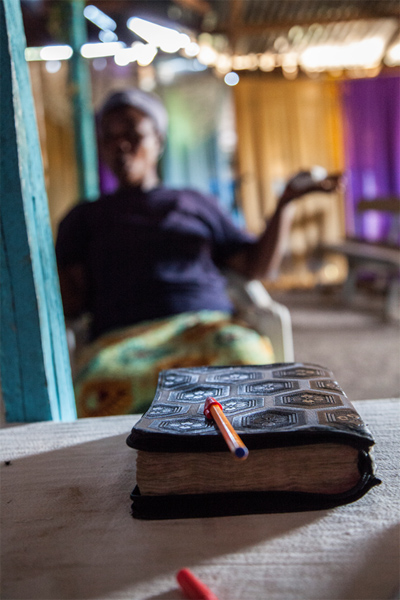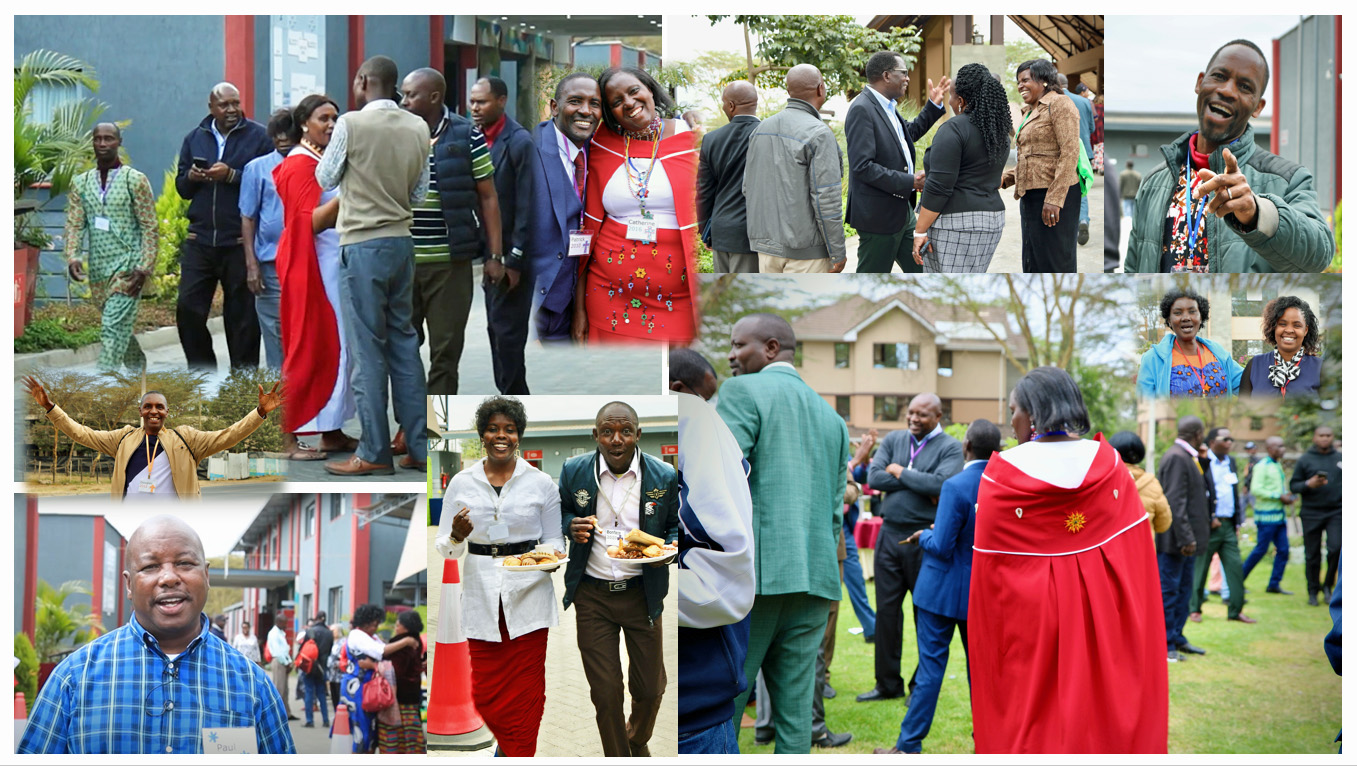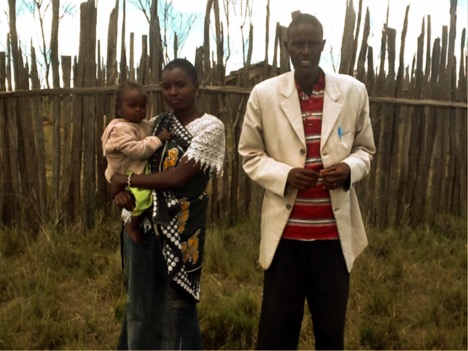Thanks to the continued generosity of a long-time donor, the first off-campus alumni conference was…
Take Heart
We stopped under a shady tree next to a vegetable kiosk in Isiolo town, and hopped out of the van to follow Henry, our tour guide to all our family members in the Isiolo area. We followed Henry down between two indistinctive building, paint chipping off of their concrete blocks from the harsh sun, through what Henry called the “valley.” The heavy rains had completely washed away the soil, leaving the pathway eroded and scattered with empty bottles and labels that had been caught in the floods. On days that it rained the road was impassable.
The sign above the mabati church greeted us “Karibuni” and we took a seat inside the coolness of the dark church. Paul Kagua, the pastor of Neno Evangelism Church, greeted us and sent Henry to get his wife who was busy at home. Ten minutes later, a woman walks in, shakes our hands and takes a seat as Paul begins telling us his story.
He always had a rebellious spirit. Much of it he attributed to an abusive relationship with his father in his childhood. Secondary school was a series of new schools, quickly followed by expulsion. Five schools, and nearly ten years later, he found himself, thanks to the generosity of a family friend who paid his school fees, finally a graduate of form four. They had met and married in the midst of it, and they found themselves poor and struggling.
It was in secondary school that he had been introduced to Islam, since the majority of his classmates followed the religion. By the time he graduated it seemed the logical road.
“Islam fed us,” Paul said, matter-of-factly. “And we were poor and hungry.”
He tells us of the years of being inducted into the religion, and then one day the elders told him they had chosen a second wife for him to take, to make him a full member of the family.
—
 This is where she jumps into the storytelling, and you can see as the words come flooding in rapid KiSwahili, that the memories were closer to the surface than any of us realized.
This is where she jumps into the storytelling, and you can see as the words come flooding in rapid KiSwahili, that the memories were closer to the surface than any of us realized.
She told her husband no. He could not take a second wife, and a day later, while they were sleeping during the night, there house was surrounded and rounds of shots were fired.
“At that time we slept on a mattress on a mat on the floor, so they did not get us,” Paul recalls. Eventually the police came and chased them away, but the next morning you could see the light spilling in through the holes the bullets left behind in the walls of their home.
They decided to run. So they left all of their belongings and caught a ride on a brewery truck heading for Isiolo. In the end, they settled in the town of Nanyuki, just an hour and a half matatu ride from where the beer lori had dropped them.
She started a business selling charcoal and was quite successful. She was invited to church by a neighbor and this was where she first became a believer. For her, things were looking better than they had in a long time.
Paul, however, was on a downward spiral. He used his wife’s profits to get drunk in the neighborhood pub. It wasn’t long before he was addicted to tobacco, then marijuana, then being arrested for shooting up with madras.
She tells us of the countless times she was called to come a bail him out of jail, and everyone in her family and their neighborhood begged her to leave. “He is good for nothing,” they told her. “He is a worthless man.”
One evening he arrived home high, with a panga in his hand, and sliced her wrist open. He dropped the panga under the bed and she took advantage of the distraction and ran out of the house to find safety. She runs her index finger back and forth over the scars on her wrist, as she displays them for us to see, a visual reminder of their dark past.
But to her, they are also a reminder of how far the Lord has brought her.
“I just kept praying,” she tells us with the same fiery determination. “I just kept believing that God could save this man. That God could use this man.”
When Kagua finally became a believer, she didn’t even believe it herself. She had purchased his usual tobacco products for him, and upon arriving home with them, he looked at her and said “How long with these things have a hold on me? No more.”
And there they sat. For a day. And then another. And even when a friend came visiting from another town with a package of cigars, they were added to the pile.
On day four she asked herself, “Lord, can this be true? Has this man really changed?”
The sun streams in from the church door, and washes over the bible on the table. When first becoming a believer, Kagua bought it from a man leaving town for two hundred shillings, and it is still the same one he uses today to preach to his congregation in Isiolo.
It has been a long road to get here, and even though they still face challenges, you can see the faith that has led them this far, is empowering them even now.
Kagua laughs as she tells us, “Even now, the Lord has more things to teach this man, but we are seeing Him move.”



